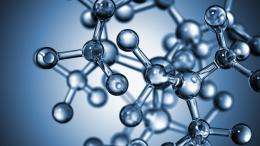New catalyst could improve production of glass alternatives

(Phys.org) -- University of Oregon chemists have identified a catalyst that could dramatically reduce the amount of waste made in the production of methyl methacrylate, a monomer used in the large-scale manufacturing of lightweight, shatter-resistant alternatives to glass such as Plexiglas.
David Tyler, Charles J. and M. Monteith Jacobs Professor of Chemistry, will present his findings Tuesday at the national meeting of the American Chemical Society, Aug. 19-23 in Philadelphia, Penn.
Global production of methyl methacrylate was 4 million metric tons in 2010. Each kilogram produced also yields 2.5 kilograms of ammonium hydrogen sulfate, a corrosive byproduct that is not usable. Disposal of ammonium hydrogen sulfate is extremely energy intensive, consuming 2 percent of the energy used in Texas annually.
Tyler’s team has identified a catalyst that doesn’t produce ammonium hydrogen sulfate. The university is securing a provisional patent for the catalyst.
“There were some really fundamental chemical reasons why previous catalysts didn’t work with this process,” Tyler said. “We’ve found a catalyst that overcomes all of those objections.”
With the identification of a working catalyst, Tyler will focus his research on how to accelerate the conversion to methyl methacrylate. The industrial standard for a practical catalyst is conversion of acetone cyanohydrin into methyl methacrylate in the span of a minute or two, Tyler said.
Provided by University of Oregon



















